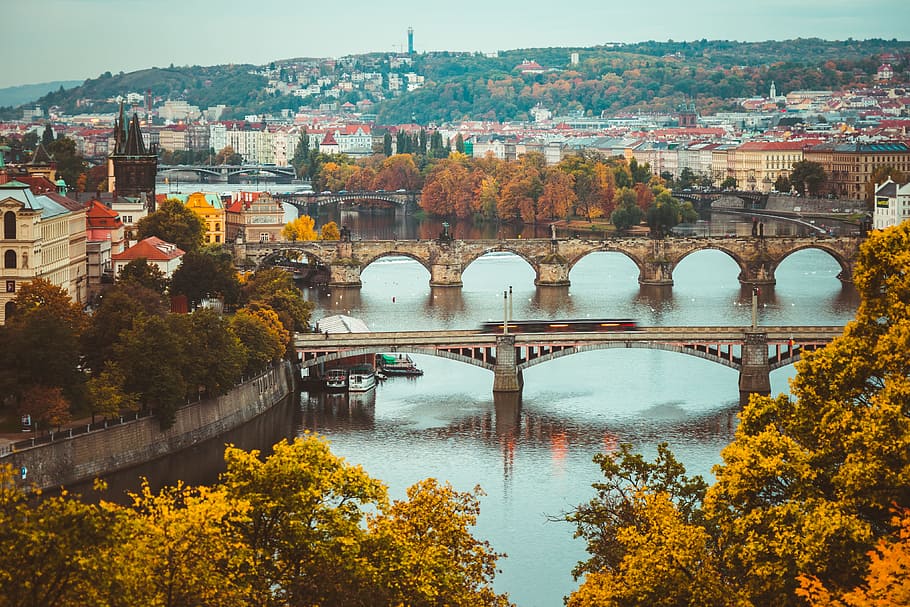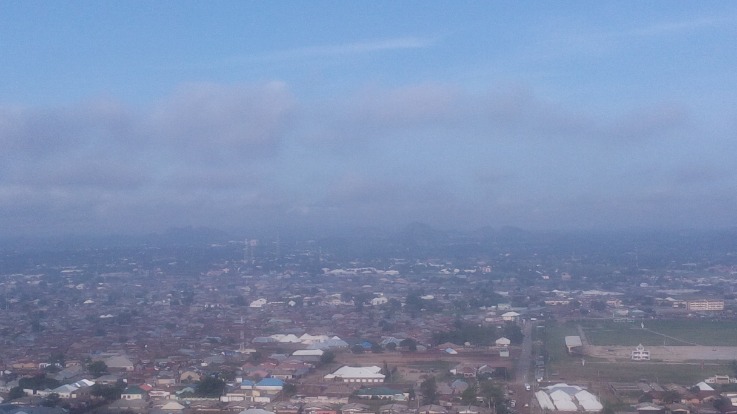Geographical Overview of Abuja
Abuja, the capital city of Nigeria, is a planned metropolis located in the central part of the country. Nestled within the Federal Capital Territory, it serves as the political and administrative hub, showcasing modern architecture and urban planning. Surrounded by lush greenery and characterized by its strategic positioning, Abuja offers a unique blend of natural beauty and infrastructural development, making it a vital center for governance, commerce, and culture in Nigeria.
Location and Area
Abuja is the capital city of Nigeria, strategically located in the center of the country. It is situated within the Federal Capital Territory, which covers an area of approximately 713 square kilometers. The city is positioned at a latitude of about 9.0576° N and a longitude of 7.4951° E, making it easily accessible from all parts of Nigeria. Abuja’s central location was chosen to promote unity among Nigeria’s diverse ethnic groups and to serve as a neutral administrative seat. The city features a mix of modern infrastructure and natural landscapes, providing a favorable environment for government, commerce, and tourism activities.
Topography and Landscape
Abuja, the capital of Nigeria, is situated centrally within the country and is characterized by its unique topography and diverse landscape. The city is located on the high plains of the Jos Plateau, offering a relatively cool climate compared to other Nigerian cities, and has a mix of natural features that define its geographical identity.
- The terrain of Abuja is primarily characterized by undulating hills, ridges, and valleys, contributing to its scenic beauty.
- The city is traversed by several rivers, including the Abuja River and the special drainage channels, which influence its landscape.
- There are various parks, forests, and green spaces scattered throughout the city, complementing the natural topography.
- Abuja’s elevation ranges from about 300 meters to over 600 meters above sea level, providing a vantage point over surrounding regions.
- The landscape incorporates rocky outcrops and granite deposits, particularly evident in areas like Zuma Rock and Aso Rock, landmark natural formations within and near the city.
Climate and Weather Patterns
Abuja, the capital of Nigeria, is situated in the center of the country within the Federal Capital Territory. The city is characterized by a mix of modern architecture and expansive greenery, making it a prominent political and administrative hub. Abuja is surrounded by rolling hills and the Aso Rock formation, which is a notable geographical landmark, contributing to its scenic landscape.
The climate of Abuja is classified as tropical with distinct wet and dry seasons. The city experiences a hot and humid rainy season from April to October, with heavy thunderstorms and substantial annual rainfall. The dry season, from November to March, features lower humidity and cooler temperatures, especially during the harmattan months when dusty winds from the Sahara Desert sweep through the region. Temperatures typically range from 22°C to 35°C, with variations depending on the season.
Weather patterns in Abuja are largely influenced by the West African monsoon, resulting in pronounced seasonal changes. The rainy season supports lush vegetation and agriculture, whereas the dry season often brings cooler mornings and evenings but can also lead to hazy conditions due to dust. Overall, Abuja’s climate plays a vital role in shaping the lifestyle and environmental conditions of the capital city.
Historical Development of Abuja
Abuja, the capital city of Nigeria, has a rich historical development that reflects the country’s journey towards nationhood. Originally selected as a planned city in the 1970s to replace Lagos as the political and administrative center, Abuja was strategically chosen for its central location and potential for growth. The city’s development symbolizes Nigeria’s aspirations for unity, modernity, and progress, transforming from a relatively small community into a vibrant metropolis that hosts government institutions, international organizations, and diverse populations. Its history is marked by careful planning and rapid expansion, reflecting Nigeria’s dynamic political and economic evolution over the decades.
Transition from Old to New Capital
The development of Abuja as the capital of Nigeria marks a significant milestone in the country’s history, reflecting its strategic move from the old administrative center of Lagos to a purpose-built city. Originally, Lagos served as the political and economic hub, but due to overcrowding, congestion, and its geographic limitations, the Nigerian government decided to establish a new capital to promote equitable regional development and improve administration. In the early 1970s, Abuja was chosen as the site for the new federal capital because of its central location, which offered better access for the entire country. The planning and construction of Abuja began in the 1980s, guided by international urban planners, and the city was officially designated as Nigeria’s capital in 1991. This transition was a deliberate move to foster national unity, decentralize economic activities, and symbolize Nigeria’s future growth. Over the years, Abuja has transformed from a planned city into a vibrant political and administrative hub, representing Nigeria’s aspirations for modernization and development while maintaining its status as the cornerstone of Nigerian governance and progress.
Historical Milestones and Planning Phases

Abuja, the capital city of Nigeria, has a rich historical development marked by strategic planning and significant milestones. The city was designated as the capital in 1976, replacing Lagos, to promote balanced regional development and reduce congestion. Its development was driven by a master plan designed by international architects, with the aim of creating a modern, well-organized urban center. The planning process involved multiple phases, beginning with initial surveys and design conceptualization in the late 1970s, followed by phased implementation throughout the 1980s and 1990s. Key milestones include the official inauguration of Abuja as the capital in 1991, the construction of governmental buildings, residential areas, and infrastructural facilities. Over time, Abuja has evolved from a planned city into a dynamic political and administrative hub, reflecting Nigeria’s aspirations for unity and progress amid rapid urban growth.
Key Figures in its Development
Abuja, the capital of Nigeria, has a relatively recent history compared to other African cities. Its development began in the 1970s when the Nigerian government decided to establish a new capital to replace Lagos, aiming to promote national unity and reduce congestion. The plan was to create a modern city that would serve as the administrative and political center of Nigeria.
Key figures in the development of Abuja include then Head of State General Yakubu Gowon, who initially commissioned the city planning project. Architect and urban planner, Sir Peter Okoye, played a significant role in designing the city’s master plan, which emphasized modern infrastructure and organized layout. Subsequent leaders like General Murtala Mohammed and Olusegun Obasanjo continued to support the project, ensuring its progress and completion.
Several Nigerian architects and planners contributed to Abuja’s growth, including Adamu Farouk, who was instrumental in local architectural contributions. The city officially became Nigeria’s capital in 1991, replacing Lagos, and has since grown rapidly into a political, administrative, and economic hub of the country. The development of Abuja reflects a combination of visionary planning and leadership aimed at fostering national unity and progress.
Administrative and Political Significance
Capital Nigeria holds a vital position both administratively and politically within the country. It serves as the headquarters for government operations, diplomatic activities, and key decision-making processes that shape national policies. As the political center, it influences regional development and acts as a symbol of unity and governance for Nigeria. Its administrative significance ensures the efficient functioning of various governmental agencies and institutions vital to the nation’s progress.
Governance and Administrative Structure
The capital of Nigeria, Abuja, holds significant administrative and political importance for the country. It serves as the seat of the federal government, hosting key government offices, ministries, and the presidential complex, making it central to Nigeria’s governance and decision-making processes.
Abuja was deliberately planned and developed to facilitate efficient governance and to serve as a neutral ground for the diverse ethnic groups in Nigeria. Its strategic location and modern infrastructure symbolize Nigeria’s political unity and stability.
The governance structure in Abuja involves a federal administrative framework, with local government councils overseeing various zones within the city. The Nigerian Federal Capital Territory Administration (FCTA) is responsible for urban planning, security, and public services, ensuring the smooth functioning of the capital.
As a political hub, Abuja also hosts numerous national institutions, diplomatic missions, and international organizations, amplifying Nigeria’s political influence both regionally and globally. The city’s administrative framework is designed to support its role as the heart of Nigeria’s political and governmental activities, reflecting its status as the country’s administrative nerve center.
Role in Federal Politics
The capital of Nigeria, Abuja, holds significant administrative and political importance within the country. As the seat of the federal government, it hosts key government institutions, including the Presidential Complex, National Assembly, and Supreme Court, making it the nucleus of Nigeria’s political activities. Abuja’s strategic location was chosen to promote unity among Nigeria’s diverse ethnic groups and to serve as a neutral ground for political administration. The city plays a vital role in federal politics by facilitating effective governance, hosting national events, and serving as a hub for diplomatic missions and international organizations. Its development reflects Nigeria’s efforts to decentralize power and foster national cohesion, reinforcing Abuja’s critical role in the country’s political landscape.
Diplomatic Missions and International Presence
The capital of Nigeria, Abuja, holds significant administrative and political importance as the center of government operations and decision-making processes. It houses the main offices of government agencies, ministries, and the residence of the President, making it a key hub for national governance. Diplomatic missions from various countries are strategically located in Abuja, reflecting its role as a diplomatic nexus in West Africa. The presence of numerous embassies and international organizations underscores Nigeria’s active engagement in global affairs and its commitment to fostering diplomatic relationships. Abuja’s international presence is further demonstrated by hostings of regional and international conferences, emphasizing its stature as a vital diplomatic and political capital in the region. This centralized location facilitates effective governance, international cooperation, and the projection of Nigeria’s diplomatic influence on the global stage.
Urban Planning and Infrastructure
Urban planning and infrastructure are vital elements in the development of any city, shaping how people live, work, and move around. In the context of Abuja, the capital of Nigeria, effective planning is essential to accommodate rapid population growth and modernize the city’s infrastructure. Proper urban development can enhance the quality of life, promote economic growth, and ensure sustainable development for future generations.
City Layout and Zoning
Capital Nigeria, Abuja, is a prime example of modern urban planning and infrastructure development. The city was meticulously designed to promote efficient land use, accessibility, and sustainable growth, incorporating a well-organized city layout that balances administrative, commercial, and residential areas. Zoning regulations in Abuja help separate these zones to reduce congestion, improve safety, and enhance the quality of life for residents. The city’s infrastructure includes wide roads, advanced transportation networks, and reliable public utilities, all planned to accommodate future expansion and environmental considerations.
Transport Infrastructure
Capital Nigeria, Abuja, is a prime example of modern urban planning and well-developed transport infrastructure. The city was meticulously designed to accommodate rapid urban growth while ensuring seamless mobility for its residents. Dedicated road networks, pedestrian pathways, and efficient public transportation systems facilitate easy movement within the city. Additionally, Abuja’s infrastructure includes expansive highways, airport facilities, and strategically located transit hubs that connect residents to other regions and neighboring countries. The emphasis on sustainable and organized development reflects Nigeria’s commitment to creating a functional and accessible capital city. Ongoing investments aim to enhance infrastructure resilience, urban mobility, and environmental sustainability, making Abuja a model for urban planning in West Africa.
Utilities and Public Services
Urban Planning and Infrastructure play a crucial role in the development of Capital Nigeria, shaping its growth and ensuring sustainable living conditions for its residents. Effective planning involves designing transportation networks, erecting modern buildings, and creating zoning regulations that promote orderly development. Utilities such as water supply, electricity, and sanitation services are essential for supporting urban populations and maintaining public health standards. Public services, including healthcare, education, and emergency response, must be efficiently managed to enhance the quality of life in the city. As Capital Nigeria continues to expand, integrated urban planning and robust infrastructure are vital for fostering economic growth and community well-being.
Economic Hub of Nigeria
Located in the heart of Nigeria, Abuja serves as the nation’s economic hub and capital city. It is a vibrant center for commerce, finance, and government activities, attracting businesses and professionals from across the country and beyond. Abuja’s modern infrastructure and strategic importance make it a vital contributor to Nigeria’s overall economic growth and development.
Commercial and Business Districts
Nigeria’s capital, Abuja, is not only the political center but also a growing economic hub, featuring several key commercial and business districts. These areas facilitate the country’s economic activities, attracting investors, businesses, and professionals from across Nigeria and beyond.
- Central Business District (CBD): The heart of Abuja’s commercial activity, hosting government offices, corporate headquarters, and financial institutions.
- Wuse District: A vibrant business area known for markets, retail outlets, and offices, serving as a hub for trade and commerce.
- Jabi and Jabi Lakeside: Emerging commercial zones with shopping malls, tech parks, and entertainment centers.
- Asokoro District: An upscale area with luxury hotels, diplomatic missions, and high-end real estate, playing a significant role in business networking.
- Jabi Lake Mall: One of Abuja’s major shopping and entertainment centers, attracting both locals and visitors for commerce and leisure activities.
Real Estate Development
Capital Nigeria, also known as Abuja, is a prominent economic hub that plays a vital role in the country’s development. Its strategic location and modern infrastructure have attracted significant real estate investments, transforming it into a center for business and commerce. The real estate development in Abuja has seen rapid growth, with the construction of high-rise apartments, commercial complexes, and luxury estates catering to both local and international investors. This urban expansion not only boosts economic activity but also provides improved living standards, making Abuja a key player in Nigeria’s economic landscape. As the city continues to develop, its real estate sector remains a crucial component driving economic growth and attracting global interest.
Employment and Economic Activities
Capital Nigeria, Abuja, serves as the economic hub of the country, playing a vital role in Nigeria’s overall development. It hosts numerous government offices, businesses, and international organizations, fostering a dynamic economic environment. The city’s strategic location and modern infrastructure attract investments across various sectors, including finance, telecommunications, and real estate. Employment opportunities in Abuja are diverse, ranging from government employment to private sector jobs in industries such as technology, construction, and services. The economic activities in the capital contribute significantly to Nigeria’s GDP, making it a center of growth and innovation. Its vibrant markets, corporate offices, and emerging industries continuously generate new employment prospects, supporting the city’s reputation as an economic powerhouse in Nigeria.
Cultural and Tourist Attractions
Nigeria’s capital, Abuja, is a vibrant hub of cultural and tourist attractions that showcase the rich heritage and modern development of the country. Visitors can explore iconic landmarks, enjoy diverse arts and crafts, and experience the lively local culture. From historical sites to stunning architectural marvels, Abuja offers a variety of attractions that captivate both tourists and locals alike.
Museums and Art Galleries
Abuja, the capital of Nigeria, is a vibrant city rich in cultural and tourist attractions, museums, and art galleries. Visitors can explore the National Mosque and the Nigerian Presidential Complex, which showcase impressive architecture and serve as symbols of national identity. The city is also home to the Nigerian National Museum, where you can discover a vast collection of art, historical artifacts, and cultural exhibits that reflect Nigeria’s diverse heritage.
Art lovers can enjoy exploring numerous galleries such as the Thought Pyramid Art Centre and the Nigerian Cultural Centre, which host contemporary and traditional Nigerian artworks. The city’s vibrant arts scene offers a glimpse into Nigeria’s rich cultural expressions through paintings, sculptures, and craftworks. Additionally, Abuja’s National Ecological Observation Centre and Aso Rock provide scenic parks and landscapes that are perfect for sightseeing and appreciation of nature.
Government Buildings and Landmarks
Abuja, the capital city of Nigeria, is renowned for its impressive cultural and tourist attractions, government buildings, and landmarks. Visitors can explore the National Mosque and the Nigerian Presidential Complex, which showcase modern architecture and serve as centers of national importance. The city also features the Nigerian National Mosque and the National Church, reflecting religious diversity. For cultural experiences, the Abuja Art and Craft Village offers local crafts, artworks, and traditional performances. Landmarks like Aso Rock provide stunning natural scenery and are iconic symbols of the city. The Abuja National Museum displays Nigeria’s rich history, heritage, and cultural artifacts, making it a must-visit destination for tourists and history enthusiasts alike.
Festivals and Cultural Events

Abuja, the capital of Nigeria, is a vibrant city rich in cultural and tourist attractions that showcase the nation’s diverse heritage. Visitors can explore the National Mosque and the National Christian Centre, which symbolize Nigeria’s religious diversity. The Nigerian Presidential Complex and the Arts and Culture Centre offer glimpses into the country’s political and artistic traditions. Abuja also features beautiful parks like Millennium Park and the Abuja Arts and Crafts Village, perfect spots for relaxation and cultural immersion.
Throughout the year, Abuja hosts various festivals and cultural events that celebrate Nigeria’s rich heritage. The Abuja Carnival, held annually, highlights colorful parades, music, dance, and traditional performances from different Nigerian ethnic groups. The Festival of Arts and Culture showcases local artists, artisans, and performers, promoting Nigeria’s creative talents. Other notable events include the Sango Festival, celebrating the Yoruba deity of thunder, and the Igbo Cultural Day, which showcases Igbo traditions, music, and dance. These festivities provide visitors with an authentic experience of Nigeria’s vibrant cultural landscape.
Challenges Facing Abuja
As Nigeria’s capital city, Abuja faces numerous challenges that threaten its development and sustainability. Rapid population growth, inadequate infrastructure, and rising urbanization put immense pressure on the city’s resources. Additionally, issues such as traffic congestion, environmental concerns, and security threats further complicate the efforts to make Abuja a safe and efficient administrative center. Addressing these challenges is crucial for shaping a resilient and prosperous capital for Nigeria’s future.
Urbanization and Population Growth
Abuja, the capital of Nigeria, faces numerous challenges due to rapid urbanization and population growth. As more people migrate to the city seeking better economic opportunities, infrastructure strains and environmental pressures intensify. This surge in population places immense pressure on transportation systems, housing, water supply, and sanitation services, often resulting in inadequate facilities and increased living costs. Additionally, unplanned urban expansion can lead to deforestation, loss of green spaces, and pollution, adversely affecting the city’s sustainability. Addressing these challenges requires comprehensive urban planning, investment in infrastructure, and sustainable development policies to ensure Abuja’s growth benefits all residents.
Environmental Concerns
Abuja, the capital city of Nigeria, faces several environmental challenges that threaten its sustainable development and the well-being of its residents. Rapid urbanization and population growth have significantly impacted the city’s natural environment, leading to various ecological and health issues.
- Deforestation and loss of green spaces due to urban expansion.
- Pollution of air, water, and soil from industrial activities and vehicular emissions.
- Inadequate waste management systems resulting in littering and illegal dumping.
- Noise pollution caused by increasing traffic and construction activities.
- Water scarcity and contamination affecting both residents and agriculture.
- Encroachment on protected areas and natural reserves, threatening biodiversity.
Infrastructure and Service Delivery
Abuja, the capital of Nigeria, faces several challenges related to infrastructure and service delivery that impact its growth and development. Rapid urbanization has placed immense pressure on existing infrastructure, leading to inadequate transportation systems, poor road networks, and congestion. Essential services such as electricity, water supply, and healthcare often struggle to meet the increasing demands of the growing population. Additionally, the expansion of informal settlements and limited planning capacity contribute to urban sprawl and environmental degradation. Governance and funding constraints further hinder project implementation and maintenance, making it difficult to deliver sustainable and efficient public services. Addressing these issues requires comprehensive planning, investment, and effective management to improve the quality of life for Abuja’s residents and support its development as Nigeria’s political and administrative hub.
Future Developments and Vision
Future developments and vision for Capital Nigeria aim to transform the city into a thriving hub of innovation, sustainability, and economic growth. With a focus on modern infrastructure, technological advancement, and environmental responsibility, Nigeria’s capital is poised to evolve into a model metropolis that balances tradition with progress. These forward-looking initiatives are set to position Capital Nigeria as a leading center for business, culture, and sustainable living in Africa.
Urban Expansion Plans
Future developments and urban expansion plans in Nigeria’s capital, Abuja, aim to foster sustainable growth and improve living standards. Strategic initiatives focus on modern infrastructure, green spaces, and smart city technologies to accommodate the growing population. Visionary projects include expanding transportation networks, enhancing housing facilities, and developing commercial hubs to boost economic activity. These efforts are designed to position Abuja as a leading urban center in Africa, balancing development with environmental considerations for a resilient future.
Smart City Initiatives
Future developments in Nigeria’s capital are focused on transforming Abuja into a smart city that leverages innovative technologies to enhance urban living. These initiatives aim to improve infrastructure, transportation, and public services through advanced digital solutions. The vision encompasses creating a sustainable, efficient, and interconnected metropolis that meets the needs of its growing population.
Smart city initiatives in Abuja include the deployment of intelligent traffic management systems, integrated security networks, and renewable energy projects. Efforts are also underway to develop smart grids for electricity distribution and e-governance platforms to facilitate citizen participation. The goal is to foster a modern, resilient urban environment that stimulates economic growth and improves the quality of life for all residents.
Sustainable Development Goals
Capital Nigeria envisions a future where sustainable development and innovative growth are at the forefront of its progress. The city aims to integrate advanced technology, eco-friendly infrastructure, and inclusive policies to create a resilient and prosperous urban environment. Emphasizing the Sustainable Development Goals (SDGs), Nigeria’s capital is committed to reducing inequality, fostering sustainable economic growth, and ensuring access to quality education and healthcare for all residents. By embracing green energy solutions and promoting environmental stewardship, Capital Nigeria strives to build a sustainable future that benefits both its citizens and the planet. This holistic approach aligns with global efforts to achieve a more equitable and sustainable world by 2030, setting a benchmark for other cities in Africa and beyond.





0 Comments